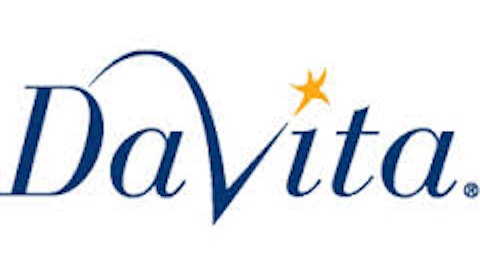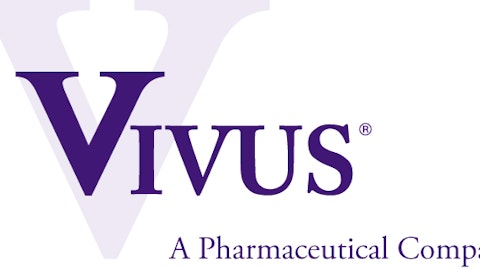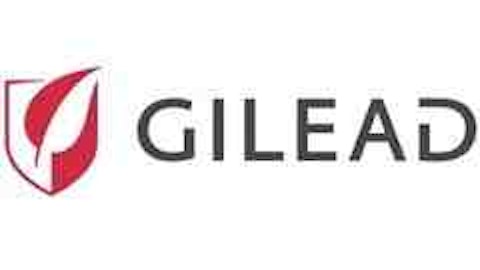With all of the factors we have to worry about in our everyday lives, it is somewhat a wonder that we’re not only able to survive, but thrive, as a society. Between our personal health, financial health, and various external factors that are well beyond our control, there are an immeasurable amount of worries that plague us each and every day.

Source: Victor Bezrukov, commons.wikimedia.org.
In 2010, a survey commissioned by Cancer Research UK in Britain questioned 2,070 adults on what their biggest fears were in an attempt to help quantify and properly understand these worries. The thought process here was simple: Knowing what concerns citizens the most will allow government agencies to focus on solutions to make people worry less, live happier lives, and likely be more productive.
The survey asked respondents to list their greatest fear from the following list of possible fears:
- Being in debt
- Developing Alzheimer’s
- Old age
- Being the victim of a knife crime (only in Britain, right?)
- Cancer
- Being in a plane crash
- Having a heart attack
- Being in a car accident
- Losing your job
- Losing your home
- Motor neurone disease
Think, for a moment, which one, were you asked, would you choose as your biggest fear.
Got it?
Would it shock you to know that more than 20% of respondents given those choices selected cancer as their biggest fear? Coming in a distant second was Alzheimer’s disease, which garnered 16% of the votes but was a considerably bigger fear for those aged 65 and older compared with younger respondents.
A worrisome development
Looking at this list I, too, would choose cancer as my biggest fear — and ultimately there’s nothing wrong with that. Genetics have been shown to play a role in whether a person develops cancer in his or her lifetime, and having lost my mother to lung cancer, and my grandfather to kidney cancer, it’s a somewhat justified fear that I have a higher genetic predisposition to developing certain cancer types.
What isn’t OK is that 34% of respondents who selected cancer believed that a cancer diagnosis was up to fate and that there was nothing they could do about it. Herein lies an opportunity to educate the U.K.’s citizens, point out methods that could help reduce their cancer risks, and, as an investor, potentially invest in the companies that can help reduce risk factors for cancer.
Had this survey been conducted in the U.S., I would suspect the results would be strikingly similar. Yet what people often overlook, according to Cancer Research UK, is that half of all people diagnosed with cancer will still be alive five years from now and 40% will be alive 10 years from now. In short, a cancer diagnosis is no longer the death sentence that it once was, thanks to better risk factor education and more effective medication.
The biggest risk factors for cancer don’t involve “fate”
One major risk factor that’s been identified is obesity. Cancer is actually the fifth most common disease caused by obesity, with it elevating people’s chance of developing breast, colorectal, endometrial, and kidney cancers, just to name a few.
One easy way to educate the public and reduce obesity levels is to encourage physical activity and proper diet. When that’s not enough, chronic weight management drug developers Arena Pharmaceuticals, Inc. (NASDAQ:ARNA) with Belviq and VIVUS, Inc. (NASDAQ:VVUS) with Qsymia may be called upon to step in.
Although neither Belviq nor Qsymia proved initially safe enough to be approved in the EU, both anti-obesity drugs are approved in the U.S. and, assuming they get a decent amount of coverage from insurance companies, could make a huge impact on the nearly 36% of the U.S. population that’s considered obese.
It’s a tough call trying to figure out which pill may come out on top, given that Belviq has the better safety profile and VIVUS, Inc. (NASDAQ:VVUS) delivered better weight loss in trials; however, the target audience is large enough that it may not matter.
The butt of the problem
Smoking is another huge factor that has been decisively linked to increasing your risk of developing cancer. In my Tackling Cancer series, smoking was practically a universal risk factor for the 12 most commonly diagnosed cancer types, and cigarette smoking was directly responsible for 37% of all cancer deaths in the U.S. between 2000 and 2004.

Source: Jo Naylor, Flickr.
Unfortunately, many cancers caused by smoking tend to be some of the most aggressive and virulent types, such as lung and pancreatic cancer. While medications do exist to treat lung cancer, the five-year prognosis is fairly grim, with a five-year survival rate of just 17%. This could be where Merck & Co., Inc. (NYSE:MRK) or Bristol Myers Squibb Co. (NYSE:BMY) swoops in to save the day.
Both companies are currently working on a new class of drug in the U.S. known as PD-1 inhibitors, which are suspected to enhance the body’s own immune response to attack cancer cells. Merck & Co., Inc. (NYSE:MRK)’s lambrolizumab has already received the rare breakthrough therapy designation from the FDA and delivered an overall response rate of 38% in multiple myeloma studies. The response rate was slightly higher, 40%, for Bristol Myers Squibb Co. (NYSE:BMY)’s nivolumab, which was combined with its FDA-approved therapy Yervoy to treat multiple myeloma. It’s expected that PD-1 inhibitors could have success in treating the most common form of lung cancer, non-small-cell lung cancer, and their development should be closely monitored.
Overexposure
A third common form of cancer that’s under our control is melanoma, a type of skin cancer that isn’t often as deadly as some of the aforementioned cancers but is caused from overexposure to the sun over the course our lives. There’s nothing wrong with spending some time in the sun, but like everything in life it should be done with some moderation.
While this may not be a huge problem for those polled in the U.K. (or for me in the Seattle suburbs), it is still a big problem at least in the U.S., with nearly 77,000 estimated diagnoses in the U.S. this year alone.
The best and most obvious solution here is to wear protective sunscreen and reduce your exposure to the sun to a moderate level. If a person is already well beyond that stage, two newly approved melanoma drugs from GlaxoSmithKline plc (ADR) (NYSE:GSK) may ultimately be called upon to do the trick. The drugs, Tafinlar and Mekinist, target the most common type of skin cancer that expresses the BRAF mutation. In trials, progression-free survival of the combo improved to 9.4 months, compared with 5.8 months for those taking Tafinlar by itself, with a whopping 41% of patients not exhibiting any signs of disease progression at 12 months!
Live long and conquer
There’s nothing wrong with having fears, but we also have to understand that many of the tools capable of reducing those fears are within our grasp. Cancer is certainly a scary six-letter word, but we have rapidly improving medicines capable of extended patients’ quality of life, and a better understanding of the risk factors that can lead to an elevated risk of developing cancer.
In addition, not only do we have the tools necessary to reduce our cancer risk, but we also have a pathway to potentially increase our wealth in the process. The aforementioned companies are literally but a handful of those that stand to benefit from treating cancer patients. As research dollars and education progresses, it’s only logical to expect the quality of cancer treatments to improve as well.
The article What’s Your Biggest Fear? The Answer Might Scare You! originally appeared on Fool.com is written by Sean Williams.
Fool contributor Sean Williams has no material interest in any companies mentioned in this article. You can follow him on CAPS under the screen name TMFUltraLong, track every pick he makes under the screen name TrackUltraLong, and check him out on Twitter, where he goes by the handle @TMFUltraLong.
Copyright © 1995 – 2013 The Motley Fool, LLC. All rights reserved. The Motley Fool has a disclosure policy.





